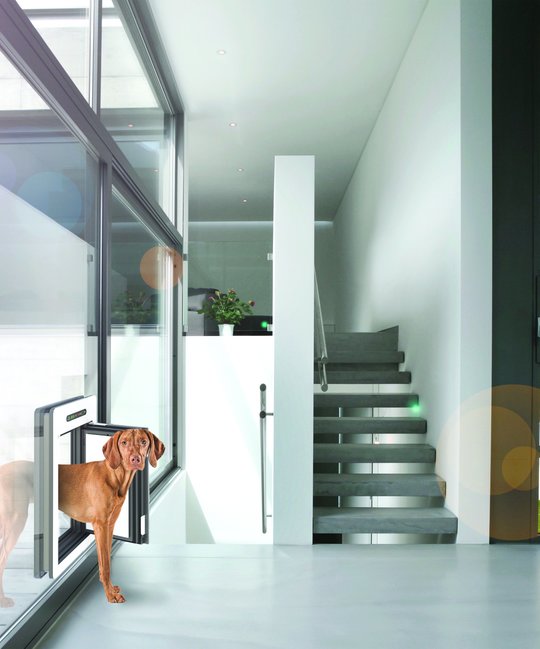Challenge
Innovative mini 5-axis milling machine
For the rapid series production capability of a milling electronics, DMU GmbH from Salzburg commissioned Ginzinger electronic systems with the optimization and integration of the electronic components.
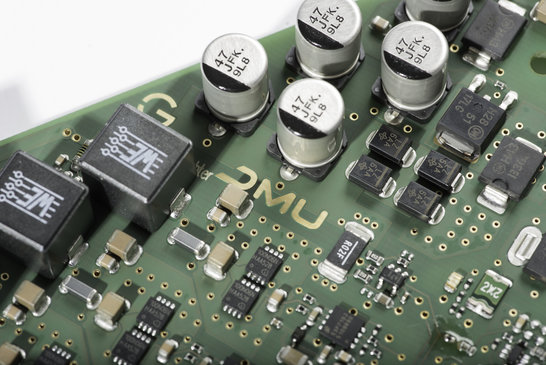
Why go far when the best is so close? Hardware and software development from a single source for the smallest 5-axis milling machine in the dental world.
DMU GmbH
DMU (Dental Manufacturing Unit) GmbH, based in Salzburg, realizes sophisticated CNC technology and offers preventive maintenance and software development. Technological leader in this field, the company develops special machines for the processing of dental raw materials.
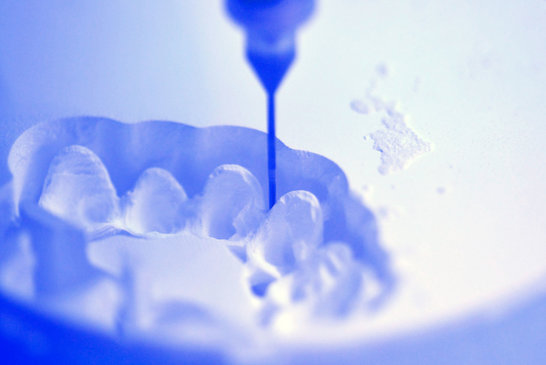
Smallest milling machine in the dental world
It all began with the invention of the world's smallest 5-axis milling machine for dental medicine. The Salzburg-based start-up company DMU GmbH, which now has around 30 employees inside, developed it to the point where it was ready for series production. In order to make the adjustments from the prototype to the finished product suitable for industrial use, changes had to be made to the proof-of-concept electronics previously used. The pressure to finalize the product was enormous, as a presentation at the world's largest dental trade fair was planned for spring 2017. In order to quickly implement the milling electronics suitable for series production, DMU commissioned Ginzinger electronic systems with the optimization and integration of the electronic components.
Dental milling machine
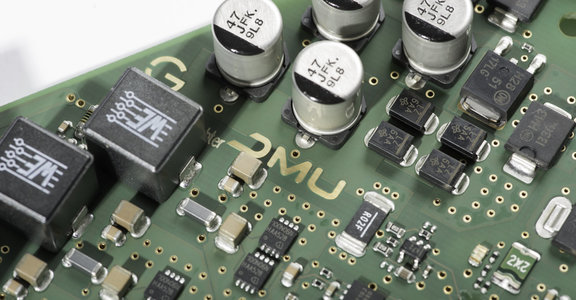
Project start
Integration & Design Optimization
The project was started immediately. The hardware of the prototypes was originally designed for many circuit boards with a high wiring effort. This effort would not be sustainable in series production. The aim was therefore to integrate all functions on two boards - an IO board and a spindle controller board - and to design them in such a way that they were ideally adapted to the milling machine housing and thermally protected. In addition, the assembly effort was to be minimized and hardware and software function groups logically and economically optimized.

Innovation in the smallest space
The confined space situation of the compact mini milling machine presented the design with a number of challenges. These include, for example, thermal management that had to be optimized as well as EMC. The design of the IO board was more time-consuming than expected. Due to the scattering of parameters with a liquid pump, there were also sporadic failures. DMU was able to mechanically intervene and optimize here.
In addition, Ginzinger's team tried to achieve improved control of the pump by means of the software drivers on the IO board, and analyzed the pump parameters through experiments and measurements.
"At Ginzinger, software developers and hardware designers work very closely together. Problems are examined in their entirety. In this task, too, the team found the perfect solution and supported DMU in further optimizing its supply chain."
Partnership implementation
DMU & Ginzinger
Ginzinger works in many projects with its own embedded run-time based on microcontrollers. This simplifies development, testing and series production and has been working in tens of thousands of delivered devices for many years. DMU also uses this run-time as a platform for software development on the IO board. While the application know-how thus remains entirely with DMU, the implementation of the software and the complex sequence management rely on Ginzinger's consistent firmware.
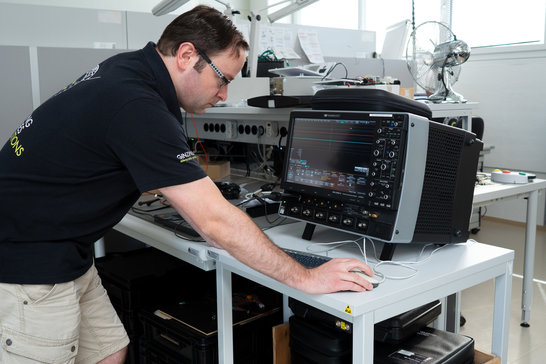
Cost reduction through proven processes
Microcontrollers have become an indispensable part of modern electronic components. However, instead of programming them again and again in bare-bones and reinventing the wheel, a lean run-time firmware proves its worth over the entire life cycle of the electronics.
You rely on a robust foundation that has been proven thousands of times, you simplify development by means of turnkey libraries, you can rely on an experienced partner to maintain the platform, and you also get test routines at IO level delivered free of charge. All in all, this leads to a great relief for all project participants and to a significant reduction of the overall costs.
Close cooperation
Result: An optimal solution
The joint project has resulted in close cooperation between DMU and Ginzinger electronic systems. Optimizations and extensions to the product continue to be carried out together on an ongoing basis. "We are pleased that in Ginzinger electronic systems we have found a reliable partner, and a nearby one at that, who has supported us quickly and unbureaucratically in the realization of our ideas," says Martin Huber, Technical Managing Director of DMU GmbH.
![[Translate to Englisch:] Martin Huber & Alfons Wörmer, GF Alfons Woermer und Martin Huber von DMU](/fileadmin/_processed_/0/f/csm_Ginzinger-Referenz-DMU-Alfons-Woermer-und-Martin-Huber_09173d00c6.jpg)
"We were happy to incorporate the experience, but also many new ideas, of the Ginzinger technicians into our product development. On this basis, we were also able to free ourselves up to focus on customer benefits."
Hardware and software development as an ideal combination
The project of the customer DMU GmbH from Salzburg shows that the combination of hardware and software development from a single source, coupled with decades of know-how in the production of electronic assemblies, leads to optimal results. Customers benefit from stable, industry-ready products that can be realized quickly.





